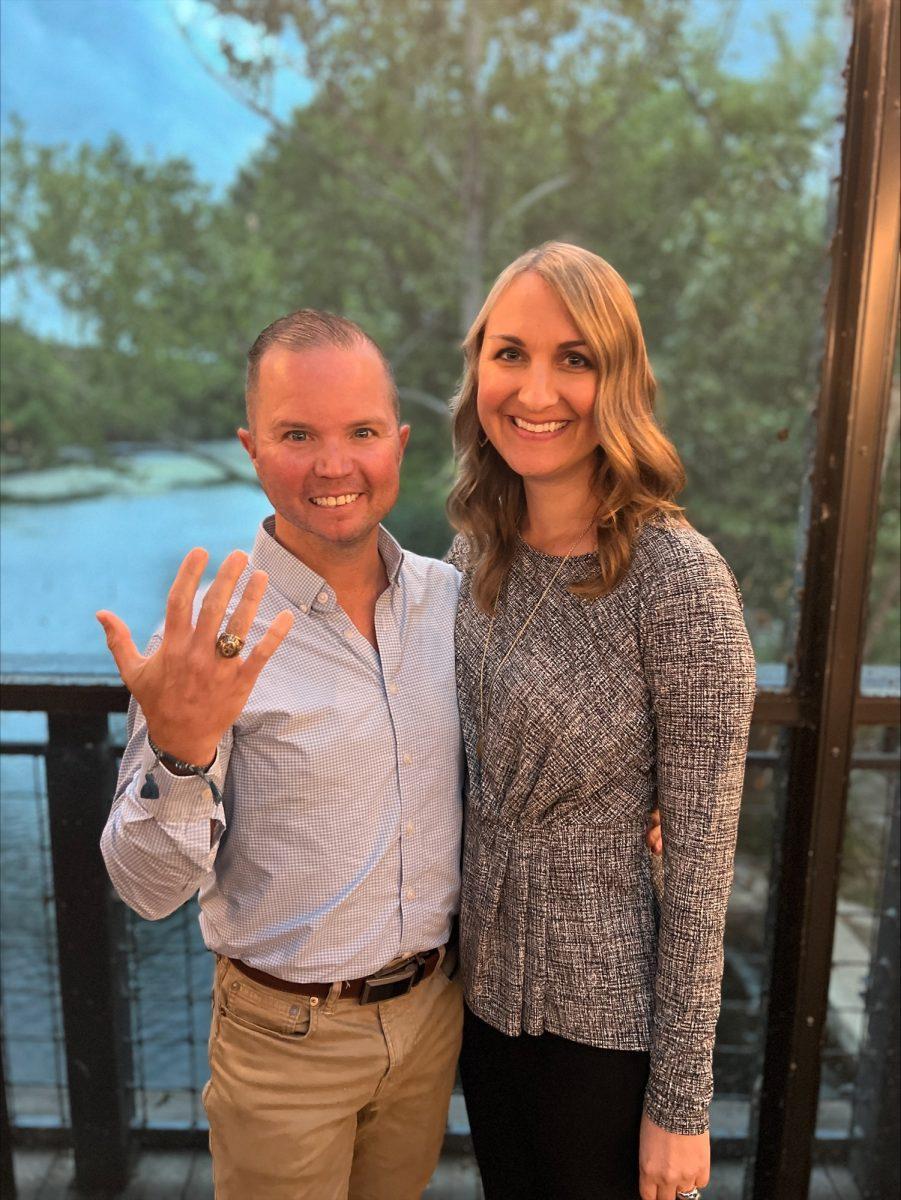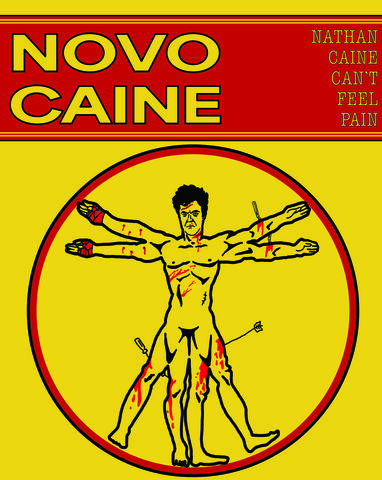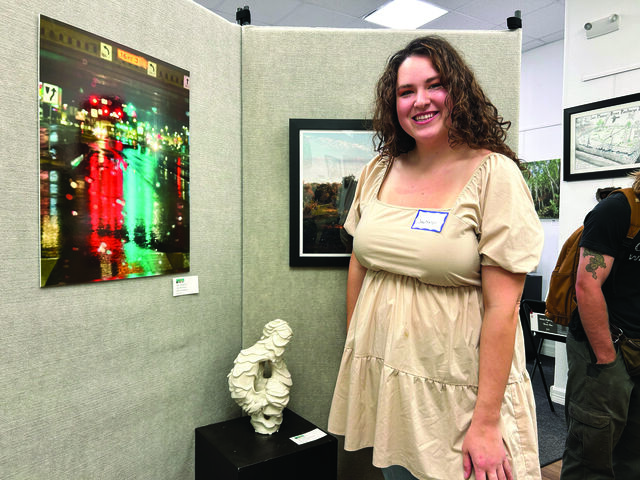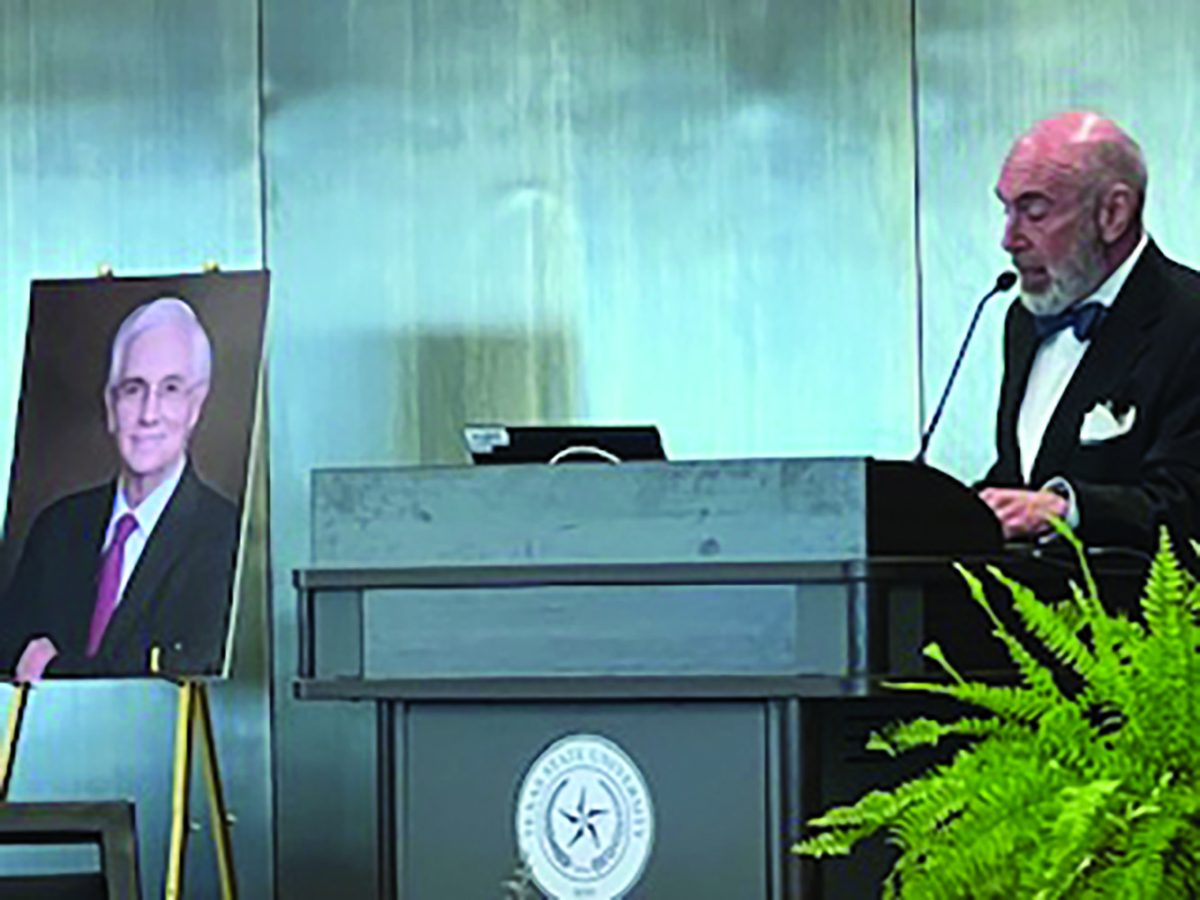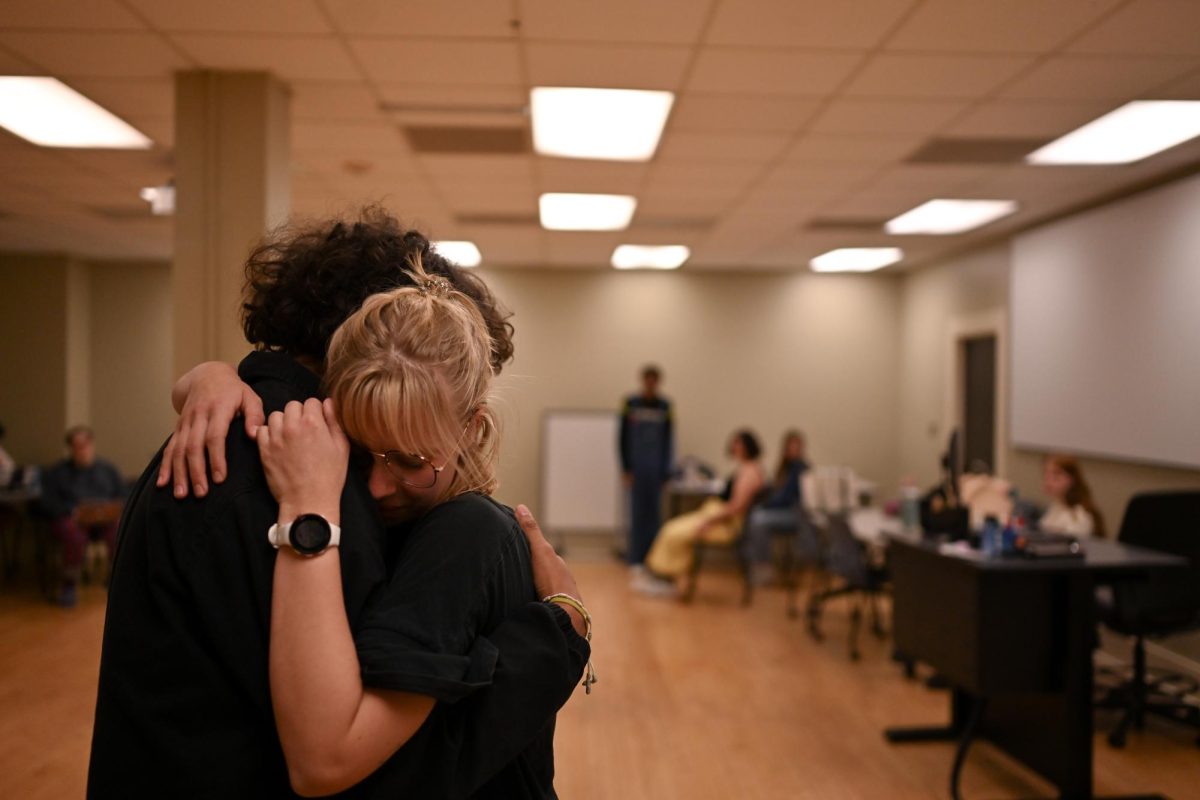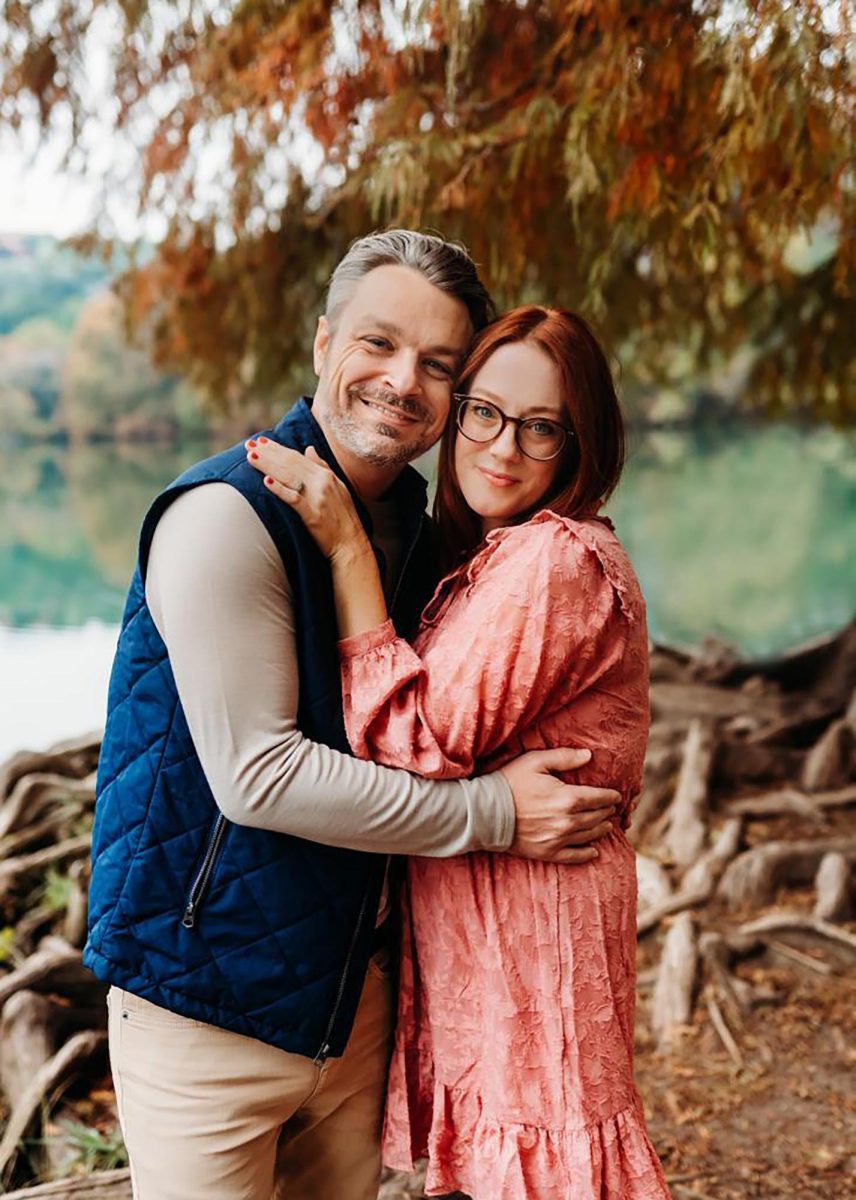Trigger Warning: This article contains discussion of addiction and depression.
When Mike Thompson went for his undergraduate degree at Concordia University in Austin, Texas, he wasn’t expected to live past freshman year.
At 10-years-old, Thompson was diagnosed with leukemia, a blood cancer that affects immature white blood cells. Between 1995 and 2002, he experienced over 75 surgeries, a facial reconstruction and two bone marrow transplants, with follow-up procedures until 2006.
Thompson was on pain medication from 2000 to 2008. His prescription occurred during the opioid epidemic, when he and many others were given more medication than needed and became addicted. He later withdrew from school in 2004.
“Not long after the cancer, I just didn’t really have a desire to do anything,” Thompson said. “That meant have a job, go to school, do anything because I was so overwhelmed with depression and frustration and fear and physical pain. And so I withdrew from that.”
Through a self-intervention and support from others around him, Thompson returned from rehab in 2008. While he was off the medication and his jaw hurt from his surgeries, he worked without a degree, including working at a bike shop and for charitable or nonprofit organizations. He connected with his bosses each time and promised them he could understand how to get the job done despite not having a traditional education or background.
Thompson achieved personal milestones during these times, such as participating in the Ironman World Championship in Hawaii in 2012 and climbing Mount Kilimanjaro in 2015. While he still felt pain in his jaw, his judgment wasn’t clouded by the pain medication and he wasn’t always depressed.
“It was kind of what I call my ‘coming back to life’ period after all the pain meds were gone,” Thompson said. “I had general motivation to excel in life that I did not have the first time I was in school or throughout the duration of my time taking pain meds.”
In 2017, Thompson realized he wanted to finish his bachelor’s to check off the box of getting a degree. He switched his major from education to communications because of his fascination with its concept of being unique to humans and how they interact.
“In all of my endeavors in life, every problem and or solution was discovered by communication,” Thompson said. “I believe that we’re all here persuading each other to engage in certain behaviors, whether that’s economically, whether that’s spiritually, whether that’s just having a good relationship with your family and friends.”
Kendall Burleson, acupuncturist at Baylor Scott and White Health at the time, had returned to school for her MBA at Texas State the year prior and believes her decision reignited her partner’s desire to get his degree.
“I think that getting his degree, while he certainly did not need it, was an important part of his personal journey toward the future that he wanted, and me being in school made him a little bit more excited to be in school,” Burleson said.
Thompson finished his undergraduate degree with Concordia in 2020. Although he hadn’t planned on attending graduate school before, the idea intrigued him, and he noticed the roles he felt he could perform required a degree qualification.
When Burleson heard Thompson wanted to pursue a master’s degree, she didn’t want him to feel pressured to go that route because she did. Her concerns disappeared after hearing his reasons.
“Ultimately, I think as partners, we just want to, you know, support our partner’s desire for personal growth and to understand what that looks like for them,” Burleson said. “I just wanted to be sure that he was doing that for himself and not because he felt any pressure to do that for me.”
After being accepted into the graduate program, Thompson’s passion for education and learning returned. Unlike his bachelor’s degree, he didn’t feel compelled to do it and instead treated it as something he wanted to do. The more he saw his academic efforts becoming real, the more he tried to understand how his experiences could positively affect the world.
Thompson developed imposter syndrome when he first entered. To him, hearing students in their early 20s have all these theories and insights into sociopolitical issues and concerns while he was in his 30s made him believe they were more intelligent than him at their age.
“[It] took me the whole first year of grad school to remove that imposter syndrome from my psyche and then start really focusing on the fact that I was a quality individual that could also create a positive impact,” Thompson said.
One of Thompson’s first graduate classes was with Stephanie Dailey, an associate professor of the Department of Communication Studies, in the summer of 2021. She served as an informal mentor for his project to better the communication of an organization, and they became good friends over the semester. Thompson left a unique impression on everyone as he candidly talked about his experiences in class, and others would understand when his jaw prevented him from class participation.
According to Dailey, his charisma and eagerness to learn from others and contribute to class discussions set Thompson apart as a student and friend.
“I think Mike is so unique because, you know, the colloquialism that ‘oh, that person lights up a room when they walk in,’ but I think Mike doesn’t just light up the room… he lights up everyone else in the room,” Dailey said. “He makes everyone else really grateful for what they have. He inspires other people.”
Thompson later took another of Dailey’s classes, where she would be an advisor giving feedback for his professional portfolio. This is an alternative to the thesis that is a synthesis of how they will apply what they learned in grad school to the real world and orally defend it, which he successfully did last month.
What’s left for Thompson for his degree is his last class, Communication Identity and International Work Cultures, a study abroad class in Europe he will take this summer with Dailey as an instructor. He will be the only graduate in a group of undergraduates, having life experiences many students don’t have.
“I’m excited for him to bring just an extra dynamic to the discussions that we have because as a graduate student, he’s done a lot more reading, and he has a just a wider knowledge base of communication theory and research, and so he’s going to bring an amazing dynamic to that program,” Dailey said.
After graduation, Thompson will focus on the release of his book, “Finding Good: My Journey to Cancer, Addiction and Rediscovering a Passion for Life,” set to be launched in October of this year. The book will combine personal anecdotes and experiences with academically sourced information on how humans can communicate better and become better people, as well as Thompson’s studies.
“The book will be kind of the entry point of introducing my view of academic research and what theories have emerged from communication studies and how those plug into my personal experiences with cancer and pain, medication addiction and just overall purpose in life,” Thompson said.
Burleson shares this sentiment, as the book can provide insight to people who haven’t had cancer or been close to someone who has or help those who are going through challenging moments. For people who have been told his story before, she’s heard them feel comforted he could come out on the other side of this or wish they shared his inspiring outlook on life.
“Spreading that passion for life to other people and providing that hope is something that all humans need,” Burleson said.
When reminded of what he’s been through, Thompson recalls a quote from an interview with Tom Hanks, “This too shall pass.”
“Something is going to come up to where it forces you to adjust and adapt,” Thompson said. “This life that we live. We know it can be volatile, and especially these last few years with COVID and heightened political chaos and just people seem to be at each other’s throats. We’re all on this journey together, and I would just say, ‘take a step back.'”
Categories:
TXST graduate rediscovers education through 13-year gap
Carlene Ottah, Life and Arts Reporter
May 8, 2023
0
Donate to The University Star
Your donation will support the student journalists of Texas State University. Your contribution will allow us to purchase equipment and cover our annual website hosting costs.
More to Discover



